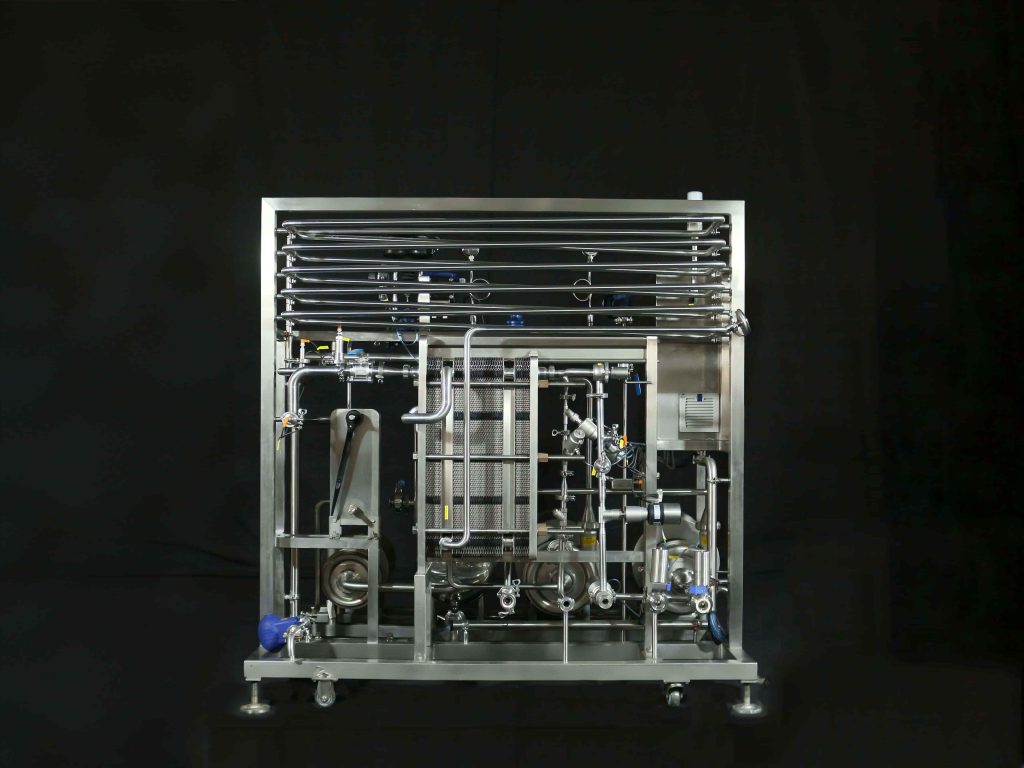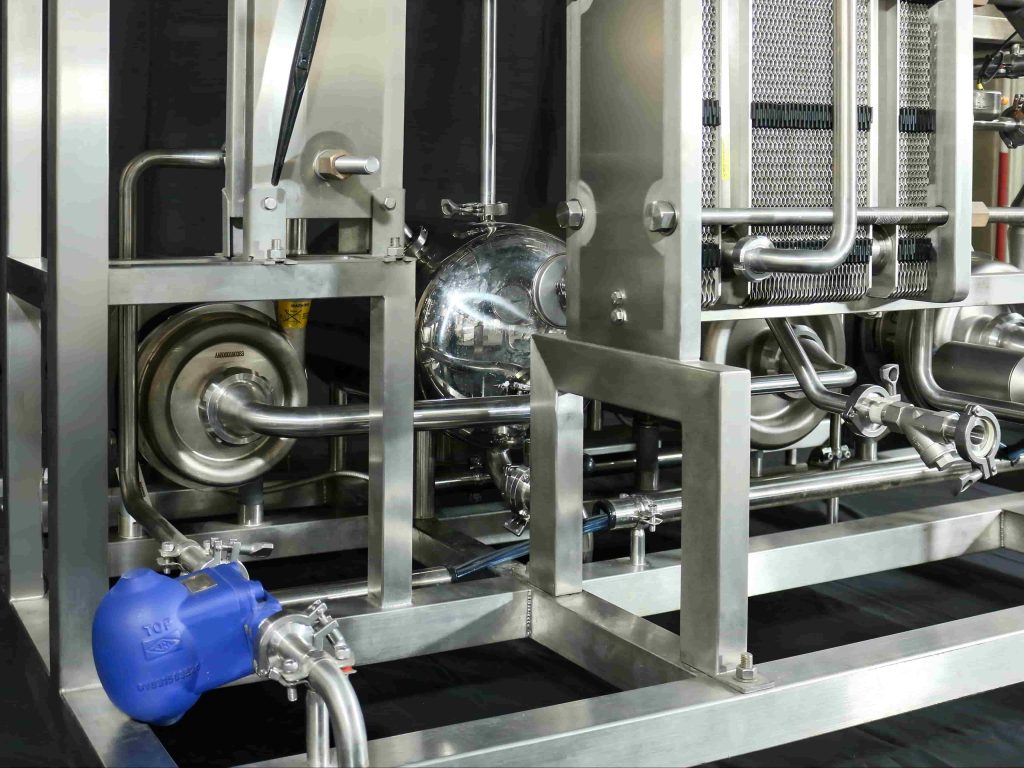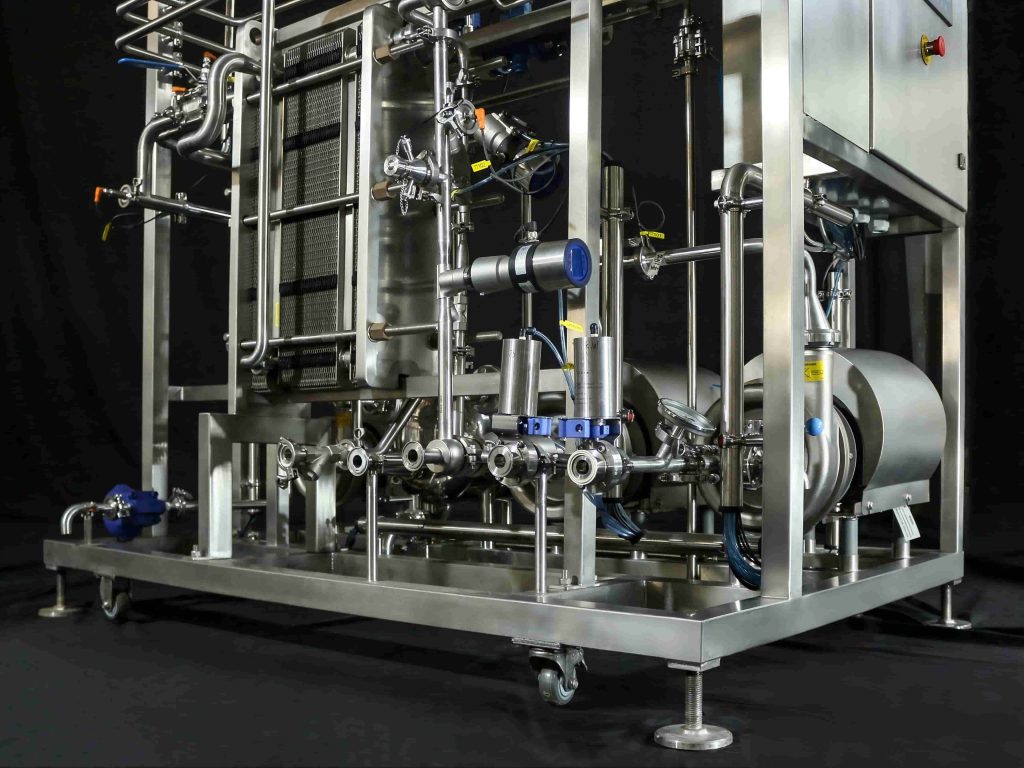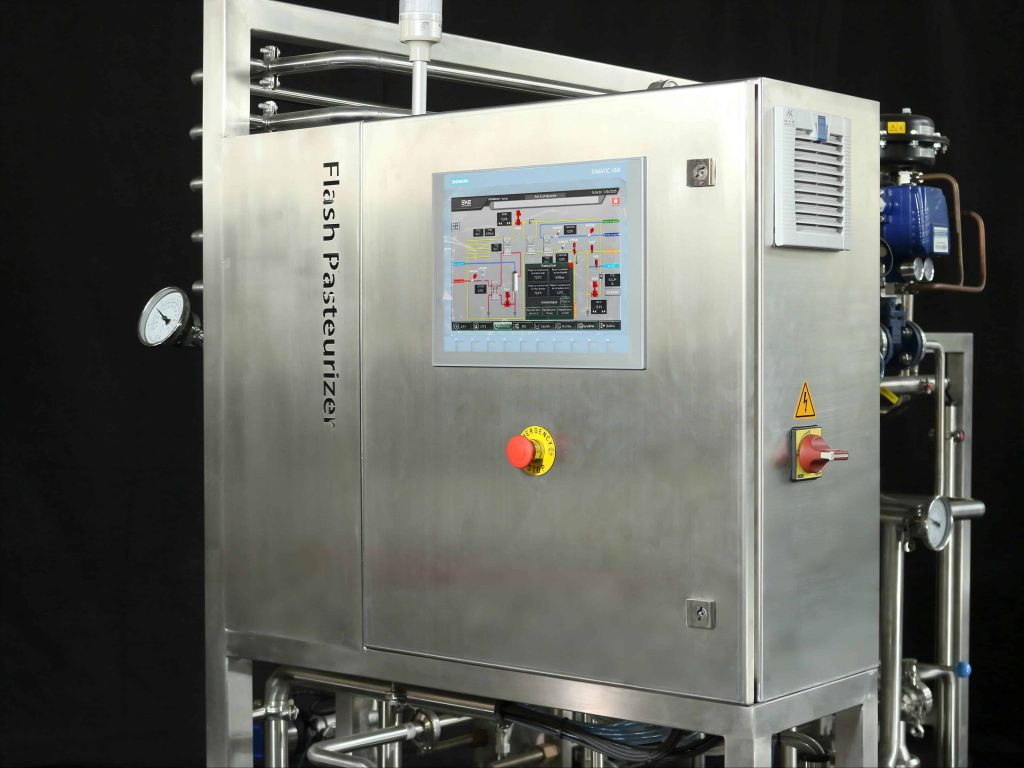
Flash Pasteurized Milk – Drinktec 2025 in Munich unveils the future of dairy safety with SKE’s state-of-the-art thermal treatment systems. Imagine strolling through Munich’s Messe grounds, where gleaming stainless-steel heat exchangers hum as they transform raw milk into ultra-safe, nutrient-rich goodness in seconds. Curious how flash pasteurized milk delivers a perfect balance of flavor, shelf life, and nutrition? Let’s dive in.
Table of Contents
1. What Is Flash Pasteurized Milk?
Flash pasteurized milk refers to milk heated to around 72 °C (161 °F) for just 15 seconds before rapid cooling. This process inactivates harmful bacteria while preserving more of milk’s natural taste and nutrients compared to traditional high-temperature, long-time (HTLT) methods. With flash pasteurized milk, consumers enjoy fresher flavor, extended shelf life, and peace of mind—ready to drink straight from the bottle or as a recipe ingredient.

2. Why Flash Pasteurization Matters
As the dairy industry seeks both safety and quality, flash pasteurized milk shines for several reasons:
| Benefit | Impact |
|---|---|
| Superior Flavor | Minimizes cooked or caramelized notes in milk taste |
| Nutrient Retention | Preserves heat-sensitive vitamins (B complex, C) |
| Extended Shelf Life | Up to 21 days when properly refrigerated |
| Energy Efficiency | Lower thermal load than HTLT processes |
| Regulatory Compliance | Meets FDA and EU pasteurization standards |
These advantages make flash pasteurized milk the go-to choice for premium dairies, specialty cafes, and foodservice operators alike.
3. Core Components of a Flash Pasteurization System
A reliable flash pasteurization line includes:
Regenerative Heat Exchanger: Recovers heat from outgoing milk to pre-heat incoming raw milk—boosting energy efficiency.
Heating Section: Precisely holds milk at 72 °C for 15 seconds; SKE’s digital controls ensure exact timing and temperature.
Cooling Section: Rapidly cools milk to 4 °C or below, locking in freshness.
Flow Diversion Valve: Sends under-temperature or over-temperature milk back for reprocessing.
Control Panel & Data Logger: Records every cycle parameter for traceability and audit readiness.
SKE’s systems leverage 316L stainless steel and hygienic design to prevent fouling, simplify cleaning, and guarantee consistent flash pasteurized milk quality.

4. SKE Innovations at Drinktec 2025 in Munich
At Drinktec 2025 in Munich, SKE will demo its next-gen flash pasteurization skid featuring:
Digital-Twin Simulation: Preview process performance under different flow rates and inlet temperatures.
Automated CIP Integration: Seamless cleaning-in-place cycles reduce downtime to under 30 minutes.
Smart Energy Management: AI-driven modulation of regenerative loops, cutting energy use by up to 18 %.
Witness live trials where raw milk enters cloudy and emerges brilliantly white—flavor intact and pathogens eliminated—in a continuous flow that dazzles operators and visitors alike.
5. Best Practices & Troubleshooting
To ensure top-tier flash pasteurized milk output:
Validate Temperature Sensors: Calibrate monthly to guarantee 72 °C hold.
Monitor Flow Rates: Keep milk velocity within design range to maintain the 15-second hold time.
Inspect Heat Exchanger Surfaces: Schedule quarterly ultrasonic tests for fouling detection.
Maintain CIP Protocols: Use SKE’s automated cleaning cycles after every production run to prevent bacterial buildup.
Common issues—such as temperature creep or valve sticking—can be preempted by SKE’s online dashboard alerts, giving you real-time insights and corrective guidance.

6. FAQs: Your Top Questions Answered
Q1. What’s the difference between HTST and flash pasteurization?
A1. Both aim for safety, but flash pasteurized milk uses a shorter hold time (15 s at 72 °C) versus HTLT’s longer durations (e.g., 30 min), preserving more flavor and nutrients.
Q2. How long can flash-pasteurized milk be stored?
A2. Properly sealed and refrigerated, flash pasteurized milk can last up to 21 days, compared to 14 days for some HTLT products.
Q3. Can small artisan dairies adopt flash pasteurization?
A3. Absolutely—SKE offers modular, skid-mounted flash pasteurization units from 500 L/h to 10,000 L/h, perfect for scaling artisanal operations.
Excited to elevate your dairy processing? Share your toughest flash pasteurized milk questions in the comments below, or visit SKE’s booth at Drinktec 2025 in Munich for a live demonstration. Let’s create the freshest, safest milk together!
